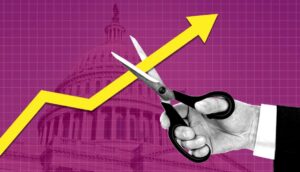The Fed Finally Cut Interest Rates—What Does That Mean for You?
Posted by Ethan Ball
Serving Cedar Rapids, Iowa, and Surrounding Areas.
The Fed Finally Cut Interest Rates—What Does That Mean for You?
On September 18, 2024, the Federal Reserve made a big move by lowering the benchmark federal funds rate by half a percentage point, bringing it down to a range of 4.75% to 5.0%. This was the first time they’ve cut rates after over a year of raising them in an effort to control inflation.
This policy shift has been a long time coming and could mean the economy is heading for that elusive “soft landing”—where inflation comes down without triggering a recession. It’s a critical moment for everyone, from consumers to businesses and investors.
Why did the Fed cut rates now?
The Federal Reserve has a dual job: keep employment high and prices stable. For the past couple of years, inflation has been the main concern, but now that prices have cooled down and are getting closer to the Fed’s 2% target, officials feel that the risks between inflation and employment are more balanced.
In his post-meeting remarks, Fed Chair Jerome Powell said, “The labor market has cooled from its formerly overheated state, and inflation has eased significantly from a high of 7% to around 2.2% as of August.”
Job growth has slowed, and unemployment has ticked up from 3.8% in March to 4.2% in August. While Powell thinks the job market is still solid, these changes suggest there are growing risks.
What does this mean for borrowers?
Lower interest rates mean good news for borrowers because it reduces the cost of borrowing money. The prime rate, which banks charge their best customers, typically moves in line with the federal funds rate. This means small-business loans, adjustable-rate mortgages, home equity lines of credit, auto loans, and credit cards could soon have lower interest rates.
If you’ve got a home equity line of credit, adjustable-rate mortgage, or any loans with variable rates, you should see your payments go down soon—usually within a couple of billing cycles.
As for mortgage rates, they tend to follow the 10-year Treasury yield. Recently, the rate for a 30-year fixed mortgage dropped to 6.09%, the lowest it’s been in 19 months, giving homebuyers more purchasing power. But keep in mind, mortgage rates could continue to fall, or they may have already factored in these expected rate cuts.
What about savers?
If you’ve been enjoying the higher interest rates on your savings accounts or short-term CDs, this rate cut could mean those yields will start to drop. It might not happen right away, but it’s something to be aware of.
If you have more cash than you need for the short term, you might want to lock in today’s relatively high yields by moving money into longer-term CDs or annuities with fixed rates. Another option, though riskier, is to invest in stocks, which historically have offered better returns over time—though you’ll need to be prepared for the ups and downs of the market.
A rate cut, but the economy’s still strong
Typically, rate cuts are made when the economy is struggling. But this time, it’s different. Powell reassured everyone that “The U.S. economy is in a good place. And our decision today is designed to keep it there.”
In the second quarter of 2024, the U.S. economy grew by a healthy 3.0% annual rate, and it looks like it kept up that pace in the third quarter. The September rate cut is meant to prevent any further weakening in the job market. Looking ahead, the Fed could cut rates another 0.5% by the end of 2024 and another full percentage point in 2025.
It’s worth noting that changes in borrowing costs take time to affect consumers and businesses, which is why some people think the economy might still face challenges. The Fed plans to make decisions “meeting by meeting,” carefully watching how things unfold.
So if you’re preparing for retirement in Cedar Rapids, consider working with a trusted financial professional at Iowa Retirement Benefits & Solutions who can help you navigate these challenges and keep your investment strategy on track.
Investment advisory services are offered through Fusion Capital Management, an SEC registered investment advisor. The firm only transacts business in states where it is properly registered or is excluded or exempted from registration requirements. SEC registration is not an endorsement of the firm by the commission and does not mean that the advisor has attained a specific level of skill or ability. All investment strategies have the potential for profit or loss.




